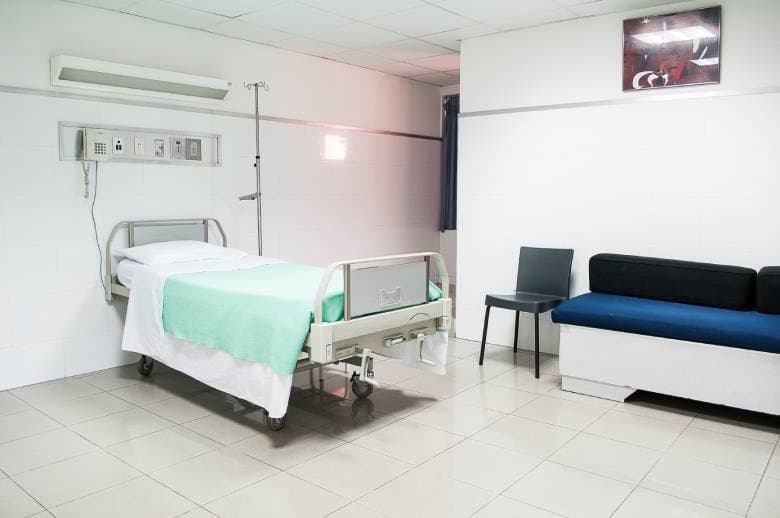Norwegian government tells hospitals to prepare for cuts

In her annual speech on the hospitals in Norway, Health Minister Ingvild Kjerkol stated that hospitals should tighten up their finances and cut the use of temporary workers.
Minister Kjerkol also asked hospitals to consider phasing out certain treatment options and methods.
"I would ask the hospitals to look at what they can do less of," she said at the St. Olav hospital in Trondheim, Norwegian news bureau NTB reports.
The Health Minister further noted that hospitals must tighten their finances in 2023 in order to handle increased prices and wages.
That means that major investment projects and maintenance may have to be postponed.
"I wish I was standing here today with promises of more money and better times. But I have to be honest that the demanding situation we are in now reduces the room to manoeuvre when it comes to hospitals," Kjerkol said.
Increased preparedness level
The minister's speech comes as hospitals all over the country increase preparedness due to coronavirus, influenza and RS virus infection in society.
The Norwegian Junior Doctors Association (Yngre legers forening) fears that budget cuts on top of higher prices and wages will weaken hospitals.
The hospitals must be fully compensated for the increase in costs, they believe.
"If this does not happen, we risk the public hospitals being sent into a deep capacity crisis with unforeseen consequences for patient treatment and patient safety," association leader Kristin Kornelia Utne told the news bureau NTB.
Budget cuts
The budget cuts will hit Norway's largest hospital, Oslo University Hospital (OUS), hard, according to Norwegian Broadcasting (NRK).
According to Kjerkol, the Northern Norway Regional Health Authority (Helse Nord) is in a particularly difficult situation, as its operations have not been financially sound for a long time.
For them, it is crucial to get control of their finances, Kjerkol warned.
"We know this will be a demanding task, but there is no way around it," she added.
Three key goals
However, according to Kjerkol, the government's three main goals for the specialist health service remain in place: prioritizing mental health and substance abuse, strengthening research, innovation and competence and improving quality and patient safety, as well as ensuring quick access to health services.
"This year, the goal is that the average waiting time should not increase compared to last year, and in the long term, the waiting times should decrease," Health Minister Kjerkol said.
Comments (1)
See Also
Minister Kjerkol also asked hospitals to consider phasing out certain treatment options and methods.
"I would ask the hospitals to look at what they can do less of," she said at the St. Olav hospital in Trondheim, Norwegian news bureau NTB reports.
The Health Minister further noted that hospitals must tighten their finances in 2023 in order to handle increased prices and wages.
That means that major investment projects and maintenance may have to be postponed.
"I wish I was standing here today with promises of more money and better times. But I have to be honest that the demanding situation we are in now reduces the room to manoeuvre when it comes to hospitals," Kjerkol said.
Increased preparedness level
The minister's speech comes as hospitals all over the country increase preparedness due to coronavirus, influenza and RS virus infection in society.
The Norwegian Junior Doctors Association (Yngre legers forening) fears that budget cuts on top of higher prices and wages will weaken hospitals.
The hospitals must be fully compensated for the increase in costs, they believe.
"If this does not happen, we risk the public hospitals being sent into a deep capacity crisis with unforeseen consequences for patient treatment and patient safety," association leader Kristin Kornelia Utne told the news bureau NTB.
Budget cuts
The budget cuts will hit Norway's largest hospital, Oslo University Hospital (OUS), hard, according to Norwegian Broadcasting (NRK).
According to Kjerkol, the Northern Norway Regional Health Authority (Helse Nord) is in a particularly difficult situation, as its operations have not been financially sound for a long time.
For them, it is crucial to get control of their finances, Kjerkol warned.
"We know this will be a demanding task, but there is no way around it," she added.
Three key goals
However, according to Kjerkol, the government's three main goals for the specialist health service remain in place: prioritizing mental health and substance abuse, strengthening research, innovation and competence and improving quality and patient safety, as well as ensuring quick access to health services.
"This year, the goal is that the average waiting time should not increase compared to last year, and in the long term, the waiting times should decrease," Health Minister Kjerkol said.
Join the conversation in our comments section below. Share your own views and experience and if you have a question or suggestion for our journalists then email us at [email protected].
Please keep comments civil, constructive and on topic – and make sure to read our terms of use before getting involved.
Please log in here to leave a comment.